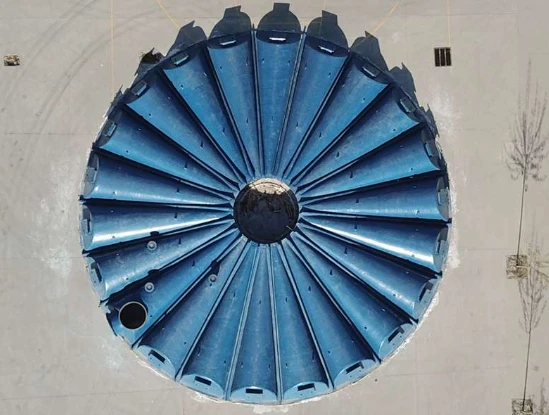
-
 Afrikaans
Afrikaans -
 Albanian
Albanian -
 Amharic
Amharic -
 Arabic
Arabic -
 Armenian
Armenian -
 Azerbaijani
Azerbaijani -
 Basque
Basque -
 Belarusian
Belarusian -
 Bengali
Bengali -
 Bosnian
Bosnian -
 Bulgarian
Bulgarian -
 Catalan
Catalan -
 Cebuano
Cebuano -
 China
China -
 China (Taiwan)
China (Taiwan) -
 Corsican
Corsican -
 Croatian
Croatian -
 Czech
Czech -
 Danish
Danish -
 Dutch
Dutch -
 English
English -
 Esperanto
Esperanto -
 Estonian
Estonian -
 Finnish
Finnish -
 French
French -
 Frisian
Frisian -
 Galician
Galician -
 Georgian
Georgian -
 German
German -
 Greek
Greek -
 Gujarati
Gujarati -
 Haitian Creole
Haitian Creole -
 hausa
hausa -
 hawaiian
hawaiian -
 Hebrew
Hebrew -
 Hindi
Hindi -
 Miao
Miao -
 Hungarian
Hungarian -
 Icelandic
Icelandic -
 igbo
igbo -
 Indonesian
Indonesian -
 irish
irish -
 Italian
Italian -
 Japanese
Japanese -
 Javanese
Javanese -
 Kannada
Kannada -
 kazakh
kazakh -
 Khmer
Khmer -
 Rwandese
Rwandese -
 Korean
Korean -
 Kurdish
Kurdish -
 Kyrgyz
Kyrgyz -
 Lao
Lao -
 Latin
Latin -
 Latvian
Latvian -
 Lithuanian
Lithuanian -
 Luxembourgish
Luxembourgish -
 Macedonian
Macedonian -
 Malgashi
Malgashi -
 Malay
Malay -
 Malayalam
Malayalam -
 Maltese
Maltese -
 Maori
Maori -
 Marathi
Marathi -
 Mongolian
Mongolian -
 Myanmar
Myanmar -
 Nepali
Nepali -
 Norwegian
Norwegian -
 Norwegian
Norwegian -
 Occitan
Occitan -
 Pashto
Pashto -
 Persian
Persian -
 Polish
Polish -
 Portuguese
Portuguese -
 Punjabi
Punjabi -
 Romanian
Romanian -
 Russian
Russian -
 Samoan
Samoan -
 Scottish Gaelic
Scottish Gaelic -
 Serbian
Serbian -
 Sesotho
Sesotho -
 Shona
Shona -
 Sindhi
Sindhi -
 Sinhala
Sinhala -
 Slovak
Slovak -
 Slovenian
Slovenian -
 Somali
Somali -
 Spanish
Spanish -
 Sundanese
Sundanese -
 Swahili
Swahili -
 Swedish
Swedish -
 Tagalog
Tagalog -
 Tajik
Tajik -
 Tamil
Tamil -
 Tatar
Tatar -
 Telugu
Telugu -
 Thai
Thai -
 Turkish
Turkish -
 Turkmen
Turkmen -
 Ukrainian
Ukrainian -
 Urdu
Urdu -
 Uighur
Uighur -
 Uzbek
Uzbek -
 Vietnamese
Vietnamese -
 Welsh
Welsh -
 Bantu
Bantu -
 Yiddish
Yiddish -
 Yoruba
Yoruba -
 Zulu
Zulu
Innovative Applications and Benefits of Glass Fiber Tanks in Modern Industries
The Advantages of Glass Fiber Tanks A Modern Solution for Storage Needs
In recent years, the demand for versatile and durable storage solutions has surged across various industries, from agriculture to construction and beyond. One of the standout options emerging in this arena is the glass fiber tank, an innovative product known for its strength, corrosion resistance, and lightweight properties. This article delves into the advantages of glass fiber tanks and the reasons why they are becoming the preferred choice for many applications.
Durability and Strength
Glass fiber tanks, also known as fiberglass tanks, are crafted from reinforced plastic composites that offer exceptional durability. Unlike traditional metal tanks, which can corrode and rust over time, glass fiber tanks are immune to environmental elements, ensuring a longer lifespan with minimal maintenance. This resistance to corrosion makes them ideal for storing various liquids, including chemicals, water, and agricultural fertilizers. Moreover, the structural integrity of glass fiber tanks remains intact even under extreme weather conditions, providing users with peace of mind knowing their contents are securely stored.
Lightweight and Easy to Transport
One of the most compelling advantages of glass fiber tanks is their lightweight nature. Compared to other materials such as steel or concrete, glass fiber is significantly lighter, which simplifies transportation and installation. This characteristic not only reduces shipping costs but also allows for easier maneuverability during the setup process. In remote locations or places with limited access, the reduced weight of glass fiber tanks can be a game-changer, facilitating more efficient operations without the need for heavy equipment.
Customization and Versatility
glass fiber tank

Glass fiber tanks are highly customizable, making them suitable for a wide range of applications. They can be manufactured in various shapes and sizes to accommodate specific storage requirements, whether for agricultural use, wastewater treatment, or industrial applications. The flexibility of design also allows for the addition of features such as manways, nozzles, and valves tailored to individual client specifications. This versatility is particularly beneficial for businesses seeking a personalized solution that matches their operational needs.
Environmental Considerations
In an era where sustainability is increasingly important, glass fiber tanks present an eco-friendly option for storage solutions. The materials used in the construction of these tanks are often recyclable, and their long lifespan helps to reduce the need for frequent replacements, minimizing waste. Additionally, the smooth inner surfaces of glass fiber tanks prevent buildup and contamination, supporting better environmental practices by ensuring the integrity of stored liquids.
Cost-Effective Solution
While the initial investment for glass fiber tanks may be higher compared to traditional materials, the long-term savings are significant. Their durability means lower maintenance costs, and their lightweight nature reduces transportation expenses. Furthermore, the peace of mind provided by their resistance to corrosion and structural integrity reduces the risk of costly leaks or failures, making glass fiber tanks a wise financial choice over time.
Conclusion
In conclusion, glass fiber tanks have emerged as a modern solution that effectively meets the diverse storage needs of various industries. Their durability, lightweight properties, versatility, environmental considerations, and cost-effectiveness position them as an attractive option in the market. As industries continue to prioritize efficiency and sustainability, the adoption of glass fiber tanks is likely to increase, setting a new standard for storage solutions. Investing in this innovative technology not only meets current demands but also reflects a forward-thinking approach to storage management.









